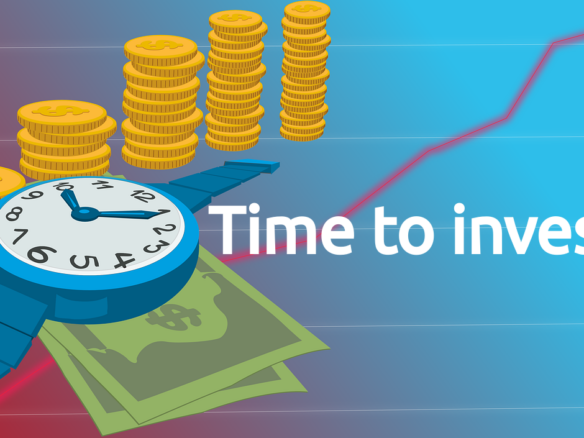Even in the 21st century, the majority of the world is still participating in the rat race. Even those in 1st world countries like the US and Europe have residents who struggle to make ends meet and beat poverty through employment. But do you know what can make your sad story a success story? Doing business and investing in real estate properties (read more) just like the 1% do. These millionaires will give you the inspiration to aim higher than just a dead-end job.
Investing in real estate can make or break your life. Some do it for the thrill, others strive to retire at the earliest age possible. No matter what your reason is, you need to things in this endeavor. Perseverance and a great partner in real estate you can invest in. So, why should you invest in real estate and start building your dream upwards?
Top 5 Reasons To Consider Real Estate Investment
1. A Lifetime Passive Income
This reason stands true to 95% of those investing in real estate. After all, who wouldn’t want to have a better life, gain time, freedom, and earn money while doing no work at all? Through investing in real estate, this can be a reality for you! Investing makes use of your brain and wit to choose the best property and sometimes the best partner as well, but it’s mostly a waiting game. Therefore, if you want to have passive income, you have to be patient enough for it.

However, if you’re hesitant to pursue real estate investment because you view it as another extension of your full-time job, it’s understandable. The process is long and hard. Not everybody can abandon ship and decide to go about investing without seeing big money being brought in, especially when their investment isn’t large enough to generate a sizeable passive income.
It’s a lot to take in, especially if you’re a beginner in real estate investing. That’s why Scott and Lisa Homes is here to help you. From choosing your method to building your portfolio, they have your back. If you decide to join them in this endeavor, you’ll have access to experts who can answer your questions, guide you through the steps, and give you expert advice!
2. Variety Is Key
If you’re already a seasoned investor, chances are you’ll know what this means. Having an investment portfolio with diversity in types of assets and geographical location will more likely give you less risk and losses. For beginners, it’s merely not placing all your money in one asset. In fact, in investment, that’s the worse move you can make, as losses can be considerable.
Imagine only investing in physical gold and silver, and when the time comes that their value is lowered, your returns take a dip as well. On the other hand, if you invested in gold and silver and real estate (and other assets if you so choose), the other’s returns will make up for it if one asset takes a dip. You don’t have to sacrifice the whole of your gains if you’re focusing on more than one investment.
This method is one of the two for managing risks. Risk Reduction (link: https://www.erminsightsbycarol.com/risk-reduction) is the act of mitigating losses through interventions, while its counterpart, Risk Avoidance, is entirely not taking part in any of the investment ventures. These two methods are equally important in different scenarios, but most investors opt for the former.
3. Market Cycles For Your Advantage
To comprehend the market cycle, especially in real estate, you need to consult an expert if you aren’t one. Though knowing the market cycle, especially when you’re in a low, can be considered hard times, seeing when it will rise and riding the waves will prove to give you larger returns.
Otherwise, elements will affect this industry, such as seller motivations, employment trends, and interest rates. Even the pandemic (check it out) has influenced the real estate industry somewhat. When the pandemic hit its peak around May, analysts and experts have seen a significant drop in home sales and investment. However, this was remedied during the summer months.
4. You Have Leverage
Leverage is a concept where you can pay for a property without putting all of your capital to pay for its full price. With other assets, it can be tricky, almost impossible. But with real estate, you can start amassing a fortune without even having a large capital to buy a property. This is what draws people to invest in Real Estate.
One reason is its accessibility despite having a lower capital than the full price of the property. You can still have all the benefits the asset can give, like the generated income, tax write-offs, and even all the equity built up over time. Another great thing about this is your ability to scatter your capital on other properties and put all your money down as required. This means you can have multiple properties generating passive income and all the other benefits.
5. You’re Able To Get A Positive Cash Flow

Cash Flow is money generated from your property after all expenses, debts, and emergency repair funds are set aside and paid. In other words, it’s the income you get from investing in the property. A positive cash flow is when you have a higher income than expenses, and that’s what every businessman or investor would want. What’s great about real estate investment is its ability to generate a positive cash flow without making you work too hard (compared to a 9-5 job).
But what’s so great about cash flow other than gaining a portion of money you invested in? Well, here are some reasons why you’d want a more significant positive cash flow:
Financial Freedom
Having a large income from your investment means you don’t have to worry about security and emergency trips to the hospital. You don’t need to drain your savings for hospitalization or college funds. Being financially free means you use your generated money outside of your savings account freely, for whatever reason, without worry, and real estate investment can offer that choice.
Time Freedom
Another significant aspect of a bigger cash flow is your time invested in more important things. When you’re no longer shackled to a 9-5 job, you’ll be more present in your family, take more frequent trips and vacations, and take time off whenever you feel like it. And all of these actions won’t affect your steady flow of income because everybody pays leases and rent regardless if you’re there or not.
Offer Up More Opportunities
When you have enough money from your income to reinvest, that’s when this investment has shown you a way to a never-ending money-generating cycle. As you gain more money from one investment, this will lead to more properties being bought, and it goes on and on until you realize you’re already a million-dollar earner.
How To Build An Investment Portfolio
An investment portfolio is the ownership of assets that are expected to generate gains and income over time. It can be in the form of a bond, stock, and other financial assets that can create an income.
1. Know What You’re Going To Invest In
Before investing, you should set-up your goals and identify how far and how high it becomes. As your plan becomes loftier, your portfolio must keep up (aka become more aggressive). There is also the matter of age and what you’re aiming for.
For example, a college student’s goals in their early 20’s can’t be the same as a seasoned investor in their 50s. As a new (or old) investor, you should adjust your goals accordingly to match your capabilities, savings, and how much risk you’re willing to take.
2. Never Overspend On An Asset
Take note that the only way to win in investment is to surpass the overall cost of the asset and expenses in terms of income. So if you overspend on a purchase, the break-point becomes higher and more challenging to achieve. In the end, you’ll end up giving up on the property, which will be a more significant loss.
3. Add Diversity To Your Investment Portfolio

Adding diversity can help your investment become less risky. Having stocks in your portfolio means you have a higher risk than bonds, but stocks have a higher growth rate. Diversity will depend on how much risk you can tolerate (financially and mentally). Still, it is well-known that younger investors include riskier assets because of the high-risk, high-gain phenomenon. Of course, the older you get, the more you opt to have more stable assets (which are slower, but you can afford them).
4. Rebalance Your Portfolio Often
The mistake some investors make, especially when feeling comfortable sitting on a certain generated income, is that if a property performs well this year, it will do so the next several years. The market is ever volatile and moves upwards or downwards. You can’t be satisfied with just leaving your portfolio until you find out your assets are blow out of proportion.




